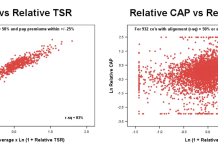The UK government has announced measures granting banks 72 hours to scrutinise suspicious transactions before processing payments to combat rising fraud
This comes after efforts to tackle the escalating threat of Authorised Push Payment (APP) scams which has left victims dealing with a total of £485 million in losses in 2022.
Protecting customers in the financial sector against rising fraud
The draft legislation revealed at a global fraud summit shows the Government’s commitment to enhancing customer protection in the financial sector.
Under the proposed law, payment service providers, including banks, will be authorised to delay transfers when there are reasonable suspicions of fraud or dishonesty.
This important extension gives institutions time to investigate potentially fraudulent activities and intervene before funds are unlawfully transferred to fraudsters.
By affording banks additional leeway to contact victims and law enforcement, the Government aims to disrupt the complex webs of deception by fraudsters.
Payment System Regulator plan to protect customers
This legislation also includes recommendations from the Payment Systems Regulator, which is made to enforce new consumer protections against APP fraud starting from October 7th.
Among these measures is a requirement for reimbursement for victims of APP fraud, covering losses of up to £450,000. This safety net is designed to alleviate the financial burdens of individuals trapped in fraudulent schemes, offering hope amongst the pervasive threat of online fraud.
Regulators have acknowledged the imperative for swift action against the growing burden of financial fraud. The Payment Systems Regulator’s recent policy statement outlines a reimbursement requirement that promises to mitigate APP scams’ impact on consumers substantially.
With the maximum reimbursement per claim set at £415,000, victims can expect greater recourse and financial reimbursement in the event of falling prey to fraudulent activities.
Greater efforts to detect and prevent APP fraud
In addition to reimbursing victims, the regulator intends to incentivise payment firms to intensify efforts in detecting and preventing APP fraud.
By sharing the reimbursement cost between sending and receiving firms, the industry aims to strengthen its defences against fraudulent transactions, safeguarding consumers’ financial well-being.
The collaborative efforts of industry stakeholders and governmental bodies are instrumental in reinforcing the resilience of the financial ecosystem against the surge of fraud.
Initiatives such as the name-checking service and confirmation of payee have already demonstrated their efficacy in mitigating fraud and minimising misdirected payments.
As practices continue to demonstrate solutions and regulatory interventions, there remains optimism for curbing the insidious threat financial fraudsters pose.
With the draft legislation passing into Parliamentary law by early October, consumers can expect enhanced safeguards and greater peace of mind in their financial transactions.











